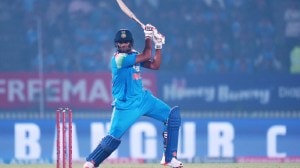Consumer is the king-maker
The average Indian consumer is normally unpredictable. Yet there is considerable clairvoyance in his behaviour. The potential of the Indian ...

The average Indian consumer is normally unpredictable. Yet there is considerable clairvoyance in his behaviour. The potential of the Indian market was determined by the growing middle classes whose investments were mainly either speculative or personal.
8220;Blade companies8221; which held out lucrative returns for investment and innovative money multiplier scheme were among the speculative investments that attracted the middle classes. They invested their money in them and paid the price for doing so. The erratic downswings of mid-1997 left them high and dry. Today, with prices of shares, property and gold dropping steadily, they dread to indulge in these ventures.
Savings being limited, the middle class consumer satiates many of his/her needs through the famous 8220;seconds8221; market. In textiles, for instance, while being well-aware of premium brands, the consumer, although desirous of acquiring them, satisfies his aspirations at a Sale8217; or Seconds8217; counter.
In the automobile sector, a person moving from atwo-wheeler to four-wheeler went to the second-hand market. Within three years, most cars depreciate by around 50 per cent. The resale value of good brands is generally 60-70 per cent of its original value. Among the middle classes, the first automobile purchase is normally a second-hand Maruti 800 and when money accumulates, they go in for a higher-priced or newer brand. Instead of a new car they would prefer to search for some sound speculatives or save depending on risk abilities. In fact, only 40 per cent car users actually bought new cars.
Auto and finance companies need to understand this psyche and make schemes more appropriate and attractive.
Liberalisation and the opening of the economy has exposed the middle classes to 8220;quality8221; products. Earlier, business and trading were almost monopolistic with little competition or choice offered to the consumer. No questions were asked, no answers given. It was a take-it-or-leave-it situation. Things have changed. Blue chip companies appeared in thestock markets and consumers were offered quality company shares for investment.
Similarly in real estate, investments are made on offer of value/quality and finally return of money.
Recession too made the consumer more discerning. He wants quality at a low price not at any price, specially when alternatives are available outside India.
Earlier it was a sellers8217; market, where survival was not the issue, as is the case today. Even with a level-playing field in terms of interest rates, how many industries could honestly consider adopting a technology, producing an economical and internationally acceptable quality product? Protection has resulted in loss of business prowess. The consumer now waits for the true value of a product to register and then invest in it. The market is not going to see any substantial changes in the stocks, real estate or gold markets until this happens. In the meanwhile, the second-hand markets will enjoy some popularity.
The steady decline of industrial growth, the crash of theSouth Asian economies and also the depreciation of the Indian rupee have added further worries to the sagging bottom line of companies and finally the national economy. Recession has resulted in stockpiling, with companies, like Telco, offering finance schemes and those like Daewoo and Akai, opting for handsome price cuts.
This is the price shake-up8217;, it will now be interesting to watch the player shake-up8217;. The future looks good for the consumer. Competition will truly benefit him. Manufacturers will now be forced to introduce new features in their goods, cut prices and work their way into the hearts and pockets of middle class consumers. In the process, the consumer becomes king and king-maker rolled into one.
The writer is a director in DCM Shriram Consolidated
- 01
- 02
- 03
- 04
- 05































